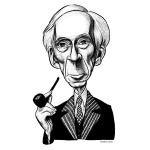And so it's a comforting metaphor, offering the reminder that hearts broken over far more serious matters than a mere game may also mend. I don't need to believe with Mr. Giamatti that anything lasts forever, I just need to look forward to the green fields of another Spring Training. There will be new growth in Spring. Up again, old heart. Get happy!
We have a little exam in HAP 101 today, followed by an introduction to the author of our next text. Here's an oldie from four years ago. I don't think there's anything I want to retract. Just note, this time we're following Owen (Happy) Flanagan, not Eric (Grump) Wilson. (Look who gave Wilson a blurb endorsement. Scary!)
But I do want to add: Happy Halloween! And Boo!!
I hope everyone understood, I wasn't joking: extra credit for good costumes (zombies, serial killers, bearded Boston ballplayers,...) and candy for teacher.
 Jennifer Michael Hecht‘s The Happiness Myth “reads like your favorite college teacher on caffeine…” (Hecht at Hampshire College… interviewed…Hecht@home)
Jennifer Michael Hecht‘s The Happiness Myth “reads like your favorite college teacher on caffeine…” (Hecht at Hampshire College… interviewed…Hecht@home)My favorite college teachers taught that way too. I’m on caffeine, but only occasionally rise to their electric level of energy and excitement. (You can take the boy out of the midwest, etc.)
But I have to agree about Hecht, totally. She’s smart and funny and thorough and fair, and a very good poet to boot. Her Doubt: A History is, as the late Howard Zinn said, a "romp" And so is this one.
This book shows you how past myths functioned, and likewise how our myths of today function, and thus lets you out of the trap of thinking you have to pay heed to any of them. This process of examining myths is also good for sharpening our ability to see truths other than our own.She’s the perfect act to follow Eric Wilson, giving a hearty Bronx cheer to the notion that sad people are deeper or more in touch with their mortality and the inherent tragedy of self-consciousness. I’ve sported one of her countless aphoristic gems as my email signature for several months. Time for a change, I guess, but I’ve really grown attached to it:
Make yourself face death and become familiar with it. But once you have done that, you have to firmly guide your attention back to life. Just walk your mind away from the dark edge of the beautiful springtime field and into its lovely center.I found those lines not long after losing Mom and Dad. They were the very words I needed to hear then, and they’ve become a mantra. The “lovely center of life,” so easy to misplace, so central to the hunt for meaning and purpose. Carpe vitam, seize the life.
The myth in question is the “mental corset” of supposing that the prejudices of our particular historical moment regarding a raft of things including our bodies, what we put into them, the consumption of pop culture, how we comport ourselves in public and with other persons, our sexuality, etc. etc., are conclusive. “This book seeks to prove that the basic modern assumptions about how to be happy are nonsense.” There have been, will be, and are other ways of seeing the world and inserting yourself successfully into it. Brian Cohen said it best: “You don’t have to follow me,” or them, or it. “You don’t have to follow anyone. You’re all individuals.” Yes you are.
But not really. We’re enmeshed in relationships, another mine-field of modern prejudice. Hecht echoes G.B. Shaw’s reminder that our significant relationships span generations. Pace Shakespeare, “Life is no brief candle [but] a splendid torch… I want to make it burn as brightly as possible before handing it on to future generations.” But in case this sounds treacly, she quickly temporizes the sentiment. “Neither Shakespeare nor Shaw must have been to High School or a faculty meeting.”
Hecht has good breaking stuff, as we say in baseball. She throws curve-balls. “The idea that drugs create fake happiness is a prejudice… A good day includes more playing than would add up to a happy life… Insight and wisdom can be useless against a dark mood… We live in little cognitive comas… We today are ridiculously goal-oriented… As lame as the game [of modern life] is, it is also a majestic continuation of human culture and we are lucky to be part of it…”
Last I heard, Hecht is currently engaged in writing a new book about Bertrand Russell, who– surprising those who know him as
 a serial philanderer and early “free love” enthusiast– said parenting had been his greatest joy. “The secret to happiness is this: let your interests be as wide as possible, and let your reactions to the things and persons that interest you be as far as possible friendly rather than hostile.’
a serial philanderer and early “free love” enthusiast– said parenting had been his greatest joy. “The secret to happiness is this: let your interests be as wide as possible, and let your reactions to the things and persons that interest you be as far as possible friendly rather than hostile.’Hecht cites William James on “the pop culture of 1902,” the so-called mind-cure movement that was not so different from our own Secret-smitten New Age. (Secret review) I think we’ll be hearing from Kristen about that today.
A propos of the Holocaust Conference getting under way in our building today, Hecht notices: “survivors of an almost fatal experience are understood to be happier than other people,” experiencing “posttraumatic bliss.” (’09 Conference schedule)
 Finally, Hecht has standards. Reminding us of Pyrrho’s famous pig, who impressed Montaigne by riding out a storm at sea with much greater equanimity (and, crucially, much less comprehension) than his human shipmates, and of J.S. Mill’s declaration that it’s “better to be a human dissatisfied than a pig satisfied,” she comments: “This whole pig-versus-philosopher debate is pretty hilarious, yes?”
Finally, Hecht has standards. Reminding us of Pyrrho’s famous pig, who impressed Montaigne by riding out a storm at sea with much greater equanimity (and, crucially, much less comprehension) than his human shipmates, and of J.S. Mill’s declaration that it’s “better to be a human dissatisfied than a pig satisfied,” she comments: “This whole pig-versus-philosopher debate is pretty hilarious, yes?”Yes. But I agree with Spinoza and Hecht. “The happiness of a drunkard is not the happiness of the wise,” though of course there are happy occasions when it has its place too. Bottom line: “Knowledge and wisdom are worth it,” it can be everything to have found true love and meaningful work, and both– all-- can end in a flash, without warning.
The Wisdom section concludes with a lesson we’ll want to master in “Atheism and Spirituality”:
“Secular happiness requires the same kind of meditative work that religion requires.” Or as Richard Starkey once said: You know, it don’t come easy.
Let us think on these things…

Can you remind me, Dr. Oliver, how we arrived at the subject of Colin McGinn today? I like to document the points of convergence between my different classes/experiences (I wrote a research paper dealing with his thoughts on movies). I can't remember how we got to talking about him though and it's killing me!
ReplyDeleteMcGinn wrote a favorable blurb for Eric Wilson's "Against Happiness," I was just getting in a dig at them both today: at Wilson for his grumpiness, & at McGinn for his documented inappropriateness with at least one grad student.
ReplyDeleteGotcha! Thank you so much, Dr. Oliver! :)
ReplyDelete